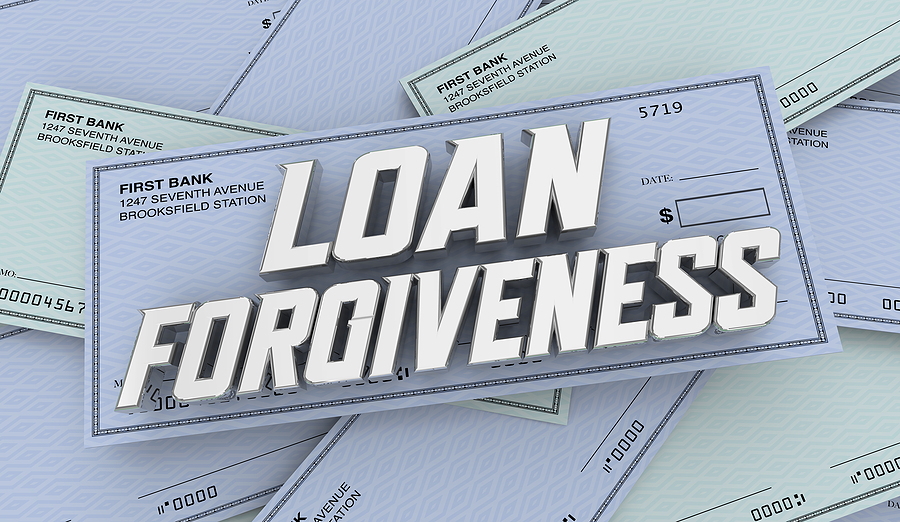Borrowers waiting to see if they could receive student loan forgiveness through the stalled Borrower Defense to Repayment settlement recently received a victory. A federal court of appeals has issued a ruling saying that student loan forgiveness and other debt relief under this program could proceed while the appeal is pending. This ruling affects over 200,000 borrowers.
The case in question is Sweet vs. Carolina. A federal district court ruled in February that the settlement relief involved in this case could proceed. The case involves a class action lawsuit led by thousands of student loan borrowers who were seeking relief from the Education Department. In the lawsuit, the borrowers alleged that the Department had illegally delayed or arbitrarily rejected hundreds of thousands of Borrower Defense to Repayment applications, unfairly blocking borrowers from receiving relief.
The Borrower Defense to Repayment program provides federal student loan discharges or other debt relief for borrowers who were deceived by their school through misrepresentations or false promises about their program.
The Department of Education settled with the class of borrowers, and a settlement agreement was approved in fall of 2022. The settlement agreement gave $6 billion in student loan discharges to approximately 200,000 borrowers who attended one of the several dozen schools listed in the agreement. Most of these schools were for-profit institutions.
Before the agreement could be implemented in January 2023, three schools listed in the settlement filed a motion to intervene and blocked the relief. The schools involved were American National University, Everglades College, Inc., and Lincoln Educational Services. They argued that the agreement and the process to get to the settlement were unfair, and that being listed in the agreement damaged their reputations.
A federal district court rejected the arguments brought by these three schools in February, but the schools then appealed to the Ninth Circuit Court of Appeals. A temporary order was issued, authorizing the Department of Education to proceed with implementing the agreement for borrowers who did not attend one of these three institutions.
Just last week, the Court of Appeals rejected the request brought by the three schools for a stay pending the appeal, stating that they failed to demonstrate that there was a sufficient probability of irreparable harm to warranty a stay of the settlement pending the appeals. This decision essentially allows all settlement relief under the agreement to now move forward while the appeal is pending.
Who can receive relief?
Qualifying borrowers are those who submitted a Borrower Defense to Repayment application to the Education Department by June 22, 2022, and who attended one of the schools referenced in the settlement agreement.
If a borrower applied for relief before the deadline but did not attend one of the listed schools, they are part of a “decision group,” meaning they will receive an individual “streamlined” decision on their application within two years from the date they submitted their application.
Borrowers who submitted their application for the program after the deadline but before the Sweet v. Cardona settlement was approved by the court on November 16, 2022, are part of the “post-class applicant” group. These borrowers are not entitled to automatic relief. However, they will receive a decision on their applications within 36 months. If they do not receive it in this time, they are entitled to full relief.
Borrowers interested in learning about who qualifies for student loan forgiveness under the Sweet v. Cardona settlement are encouraged to learn more here.
Am I a Sweet class member?
The settlement defines the class as “all individuals who had a borrower defense application pending as of June 22, 2022.” Additionally, under the settlement, the Department of Education agreed to rescind all borrower defense denials that it issued between December 2019 and October 2020. If you received a form denial notice during that time period, the Department will treat your original application as if it had never been denied and you will be a member of the class.
Keep in mind that this ruling is completely separate and distinct from the current legal battle over Biden’s one-time student loan forgiveness program. That case is still currently before the U.S. Supreme Court, with a decision expected this summer.
Please click here to read more.
For borrowers who are struggling with student loan debt, relief options are available. Many student loan borrowers are unaware that they have rights and repayment options available to them, such as postponement of loan payments, reduction of payments or even a complete discharge of the debt. There are ways to file for bankruptcy with student loan debt. It is important you contact an experienced Miami bankruptcy attorney who can advise you of all your options. As an experienced CPA as well as a proven bankruptcy lawyer, Timothy Kingcade knows how to help clients take full advantage of the bankruptcy laws to protect their assets and get successful results. Since 1996 Kingcade Garcia McMaken has been helping people from all walks of life build a better tomorrow. Our attorneys help thousands of people every year take advantage of their rights under bankruptcy protection to restart, rebuild and recover. The day you hire our firm, we will contact your creditors to stop the harassment. You can also find useful consumer information on the Kingcade Garcia McMaken website at www.miamibankruptcy.com.

